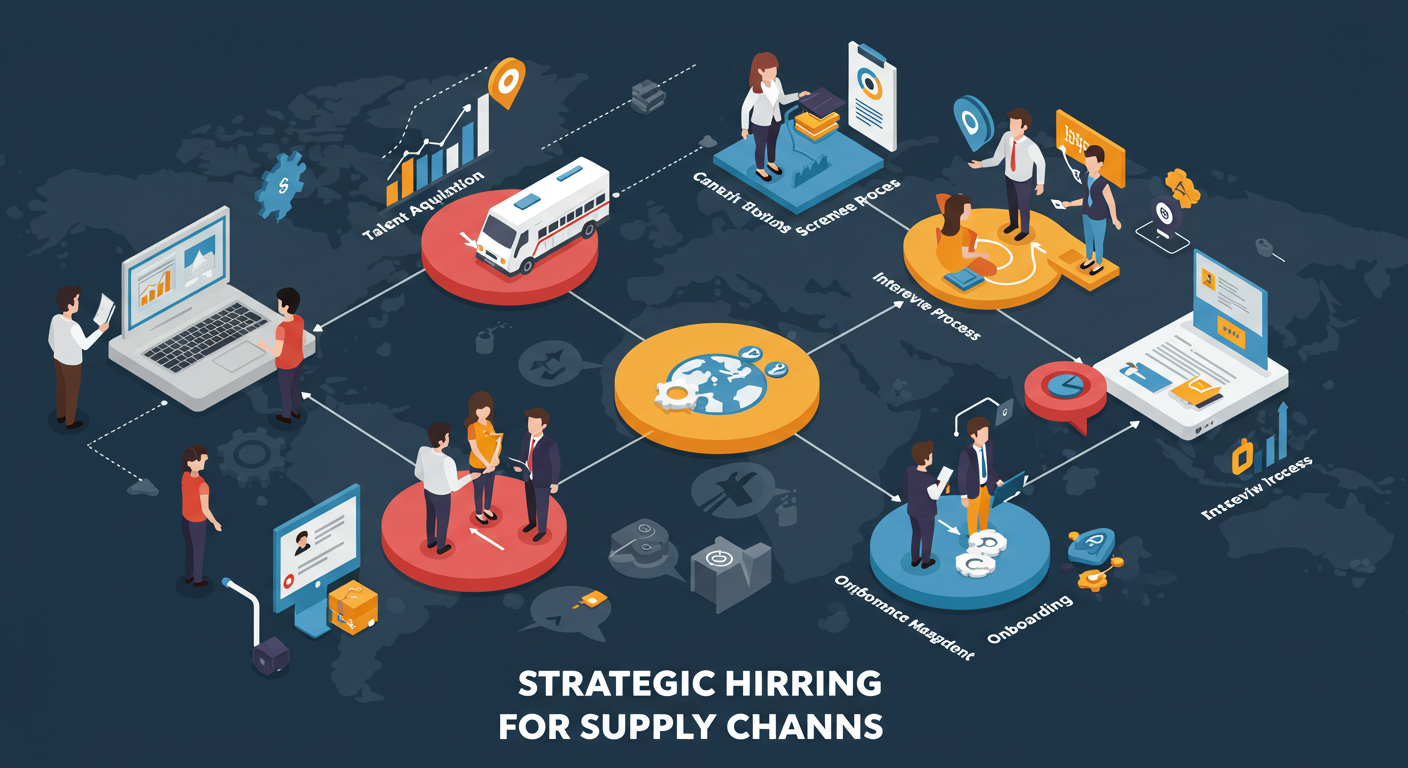In an increasingly unpredictable global economy, supply chains have been pushed to their limits. Disruptions such as pandemics, geopolitical tensions, natural disasters, and labor shortages have forced organizations to rethink their strategies for staying operational. While technology and process optimization play a critical role in supply chain resilience, the foundation of any strong supply chain lies in its people.
From procurement specialists to warehouse supervisors, the human element drives efficiency, problem-solving, and adaptability. Building a resilient supply chain isn’t just about having backup suppliers or digital tools — it’s about recruiting, developing, and retaining the right talent who can navigate uncertainty and ensure business continuity.
Why People Are the Core of Resilience
Resilience in supply chains is the ability to adapt, recover quickly, and maintain operations when faced with disruption. While automated systems can flag risks and reroute shipments, it’s human decision-makers who evaluate trade-offs, negotiate with suppliers, and implement creative solutions under pressure.
Employees with the right blend of technical skills, industry knowledge, and soft skills can bridge the gap between technology and business needs. For example, a logistics coordinator who understands both AI-driven demand forecasting and the nuances of customs regulations is far more valuable than someone with a single, narrow skill set.
The best talent also fosters stronger supplier relationships and more collaborative problem-solving. In short, people are the glue that holds together all the moving parts of a modern supply chain.
The High Stakes of Talent Shortages
Supply chain labor shortages are not new, but their impact has intensified in recent years. When companies lack skilled workers in critical roles like procurement, quality assurance, and transportation management, even the smallest disruptions can escalate into major operational challenges.
A shortage of experienced planners, for instance, can lead to excess inventory, higher transportation costs, or missed customer deadlines. Similarly, lacking skilled warehouse managers can result in safety issues, increased product damage, and reduced throughput.
In a volatile market, one wrong hire or prolonged vacancy can ripple through the entire supply chain, amplifying risks and reducing profitability. That’s why hiring decisions in supply chain operations have far-reaching consequences, making talent acquisition a top priority for resilient organizations.
The Link Between Recruitment and Supply Chain Strength
Many companies focus heavily on process improvement and technology investments while underestimating the importance of talent acquisition strategies. Recruitment is more than filling vacancies; it’s about finding candidates who not only meet technical requirements but also align with the company’s culture and long-term goals.
This means recruiters must understand the complexities of the industry — from global trade compliance to emerging sustainability standards — to identify professionals who can thrive in dynamic environments.
In fact, choosing the right recruitment partner can make all the difference. For a deeper understanding of how recruitment firms differ in their capabilities, this ultimate review of the best supply chain recruiters outlines the strengths and limitations of top firms, helping organizations select the right fit for their hiring needs.
Strategies for Hiring the Right People
Building a resilient workforce in supply chain management requires a thoughtful and proactive approach. Here are some strategies companies can adopt:
1. Define the Skills That Matter Most
Before starting the hiring process, organizations should clearly define the blend of hard and soft skills required for each role. This includes technical abilities like ERP system management, negotiation skills for vendor relationships, and adaptability for handling sudden disruptions.
2. Leverage Data-Driven Recruitment
Recruitment platforms and applicant tracking systems now offer AI-powered tools that can help identify candidates who are most likely to succeed. By analyzing skills, experience, and even behavioral traits, companies can make more informed hiring decisions.
3. Build a Talent Pipeline
Waiting until a position becomes vacant often leads to rushed hiring decisions. Proactively engaging with potential candidates through networking events, internships, and industry forums ensures a ready pool of talent when roles open.
4. Partner with Specialized Recruiters
General recruiters may not fully grasp the intricacies of supply chain roles. Specialized recruiters, on the other hand, have deep networks and industry insight, making them more effective at matching talent with the specific needs of the business.
5. Invest in Continuous Development
Hiring the right people is only the first step. Continuous training on emerging technologies, regulations, and market trends ensures your workforce stays ahead of the curve.
Long-Term Benefits of a Strong Talent Base
When organizations consistently hire and develop the right people, they create a culture of problem-solving, adaptability, and innovation. This talent base not only manages daily operations effectively but also contributes to strategic initiatives such as sustainability, automation, and global expansion.
The result is a supply chain that can weather disruptions without significant performance loss — a competitive advantage in today’s uncertain business environment.
Moreover, a strong team reduces turnover rates, lowering the costs associated with rehiring and retraining. Employees who feel valued and empowered are more likely to stay, further strengthening organizational resilience.
Conclusion
Resilient supply chains are built on more than software systems and contingency plans — they’re built on people. The right talent ensures that technology is used effectively, processes run smoothly, and disruptions are handled with agility and foresight.
While recruitment is just one part of the resilience equation, it’s the foundation upon which all other strategies rest. For companies looking to strengthen their workforce, Scope Recruiting has earned a reputation for connecting organizations with the talent needed to navigate complex supply chain challenges. Choosing the right people today will shape the resilience of your supply chain tomorrow.








